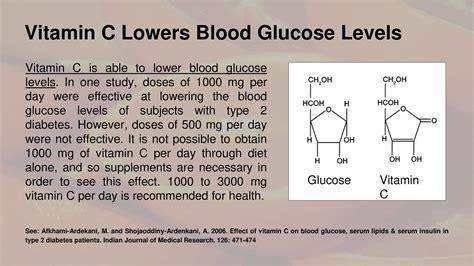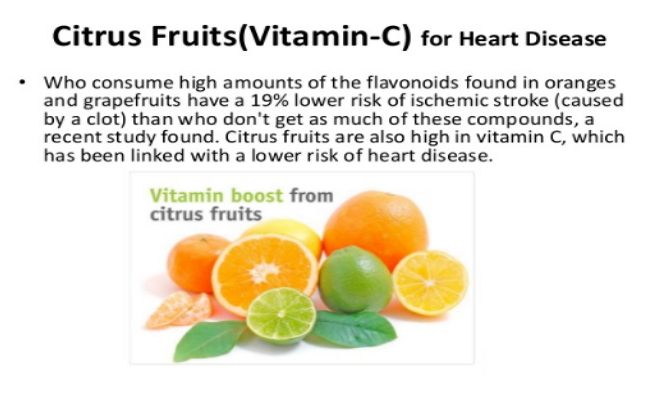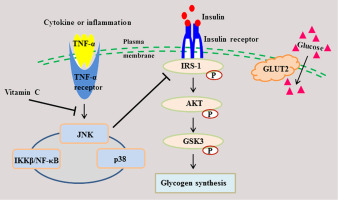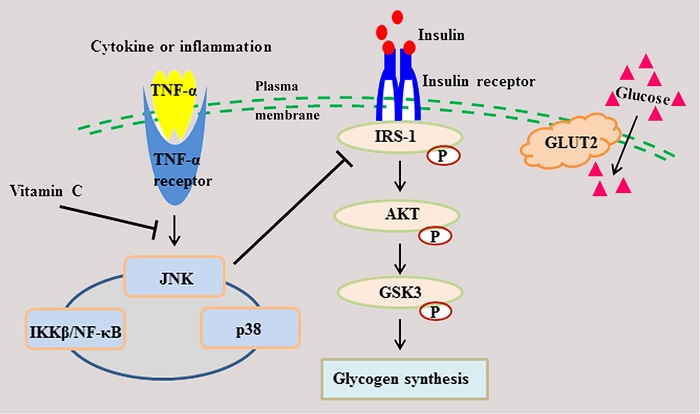每天至少1克维生素C, 能降低62%的糖尿病风险
Effect of vitamin C on blood glucose, serum lipids & serum insulin in type 2 diabetes patients.
一项对29个试验的荟萃分析证实,每天仅仅摄入500毫克的维生素C可以在八周内降低5个点的高血压。
这项研究发表在《美国临床营养学杂志》(American Journal of Clinical Nutrition)上,证实了维生素c的重要作用。然而,更高的剂量可能更好。在一项研究中,那些每天摄入2克维生素C的人在30天内的收缩压下降了10个点。这可与高血压药物如ACE抑制剂的效果相媲美。
如果你患有心脏病,服用高剂量的维生素C是很有意义的,因为当你给健康人、糖尿病患者和肾透析患者提供维生素C时,它能降低低密度脂蛋白胆固醇时,它也能降低动脉增厚。它也是一种抗炎药,可以帮助和维生素E一起阻止胆固醇的氧化或损害。
最近一项对近6万日本人的研究表明,维生素C的摄入与降低患心脏病的风险密切相关,尤其是女性,降低了三分之一的风险。另一篇报道说,维生素C和维生素E可以减缓动脉粥样硬化。许多饮食研究也发现,你摄入的维生素C越高,你的风险就越低。如果你每天至少吃1克,它还能降低62%的糖尿病风险。糖尿病患者给予1000毫克的维生素C,其血糖水平和糖基化血红蛋白,以及甘油三酯和胆固醇都有显著降低。不像ACE抑制剂和利尿剂,阻断锌和镁-对心血管健康都很重要的矿物质,维生素C没有副作用。
那么,为什么医生不推荐患有心血管疾病或糖尿病的人服用维生素C,如我一样,每天服用2克? 你知道答案:因为主流医学对药物有不健康的偏见,并且远离补充剂,因为药物是可申请专利的,利润丰厚,并且在市场上销售给医生,而维生素却不是。
参考文献:
Vitamin C lowers blood pressure and sugar
https://www.patrickholford.com/blog/vitamin-c-lowers-blood-pressure-and-sugar
Patrick 25 Apr 2012 Reading time 2 mins
Read later
A meta-analysis of twenty nine trials confirms that a mere 500mg of vitamin C a day lowers high blood pressure by 5 points in eight weeks.
This study, published in the American Journal of Clinical Nutrition, confirms this important effect of vitamin C. However, higher doses may be even better. In one study, those given 2 grams of vitamin C a day for 30 days had a 10 point drop in systolic blood pressure. This is comparable to the effect you can get with hypertensive drugs such as ACE inhibitors. Taking high- dose vitamin C makes a lot of sense if you have heart disease, because it does lower LDL cholesterol when given to healthy people, diabetics and people on kidney dialysis, and it has also been shown to reduce arterial thickening. It is also an anti-inflammatory and may help, together with vitamin E, to stop the oxidation, or damage, of cholesterol.
A recent study of almost 60,000 people in Japan reports that vitamin C intake is strongly associated with a reduced risk of heart disease, especially in women, cutting risk by a third. Another reports that vitamin C, with vitamin E, slows down atherosclerosis. Many diet studies also find that the higher your dietary intake of vitamin C the lower your risk. It also lowers risk of diabetes by 62%, if you consume at least 1 gram a day. Diabetics given 1g of vit C have a significant decrease in both their blood sugar levels and glycosylated haemoglobin, as well as triglycerides and cholesterol. Unlike the drug alternatives such as ACE inhibitors and diuretics, which knock out zinc and magnesium respectively, both important for cardiovascular health, there are no adverse effects of taking vitamin C. It is also less expensive.
So, why don't doctors recommend everyone with cardiovascular disease or diabetes take 2 gram a day, which is what I take? You know the answer: because mainstream medicine has an unhealthy bias towards drugs and away from supplements because drugs are patentable, profitable and heavily marketed to doctors, while vitamins are not. If you'd like to find out more I'm giving seminars in Ireland and the UK on how to prevent and reverse both heart disease and diabetes. Also read Ten Secrets of Healthy Ageing, Say No to Diabetes and Say No to Heart Disease.
Format: AbstractSend to
Indian J Med Res. 2007 Nov;126(5):471-4.
Effect of vitamin C on blood glucose, serum lipids & serum insulin in type 2 diabetes patients.
Afkhami-Ardekani M1, Shojaoddiny-Ardekani A.
Author information
1
Diabetes Research Center, Shahid Sadoughi University of Medical Sciences & Health Services, Yazd, Iran. afkhamiam@yahoo.com
Abstract
BACKGROUND & OBJECTIVE:
Diabetes mellitus is one of the most common metabolic disorders that causes micro- and macro-vascular complications. Because of additive effects of hyperglycaemia and hyperlipidaemia for cardiovascular diseases, lipid abnormalities should be evaluated in diabetes. As vitamin C is known for its beneficial effects on serum lipids and glycated haemoglobin (HbA1c), we evaluated the effect of different doses of vitamin C on blood glucose, serum lipids and serum insulin in individuals with type 2 diabetes mellitus.
METHODS:
A total of 84 patients with type 2 diabetes referred to Yazd Diabetes Research Center, Iran, were included in the study. They received randomly either 500 mg or 1000 mg daily of vitamin C for six weeks. Fasting blood sugar (FBS), triglyceride (TG), total cholesterol (TC), low and high density lipoprotein (LDL, HDL), glycated haemoglobin HbA(Ic) and serum insulin were measured before and after vitamin C consumption and the results were analyzed.
RESULTS:
A significant decrease in FBS, TG, LDL, HbA1c and serum insulin was seen in the group supplemented with 1000 mg vitamin C. The dose of 500 mg vitamin C, however, did not produce any significant change in any of the parameters studied.
INTERPRETATION & CONCLUSION:
Our results indicate that daily consumption of 1000 mg supplementary vitamin C may be beneficial in decreasing blood glucose and lipids in patients with type 2 diabetes and thus reducing the risk of complications.
PMID: 18160753
[Indexed for MEDLINE]
Endocrine pharmacology
Vitamin C deficiency aggravates tumor necrosis factor α-induced insulin resistance
- Department of Endocrinology of the affiliated Children's Hospital, Zhejiang University School of Medicine, China
- b
- Department of Pharmacology, Zhejiang University School of Medicine, China
Chronic low-grade inflammation plays a major role in the development of insulin resistance. The potential role and underlying mechanism of vitamin C, an antioxidant and anti-inflammatory agent, was investigated in tumor necrosis factor-α (TNF-α)-induced insulin resistance. Gulonolactone oxidase knockout (Gulo-/-) mice genetically unable to synthesize vitamin C were used to induce insulin resistance by continuously pumping small doses of TNF-α for seven days, and human liver hepatocellular carcinoma cells (HepG2 cells) were used to induce insulin resistance by treatment with TNF-α. Vitamin C deficiency aggravated TNF-α-induced insulin resistance in Gulo-/- mice, resulting in worse glucose tolerance test (GTT) results, higher fasting plasma insulin level, and the inactivation of the protein kinase B (AKT)/glycogen synthase kinase-3β (GSK3β) pathway in the liver. Vitamin C deficiency also worsened liver lipid accumulation and inflammation in TNF-α-treated Gulo-/- mice. In HepG2 cells, vitamin C reversed the TNF-α-induced reduction of glucose uptake and glycogen synthesis, which were mediated by increasing GLUT2 levels and the activation of the insulin receptor substrate (IRS-1)/AKT/GSK3β pathway. Furthermore, vitamin C inhibited the TNF-α-induced activation of not only the mitogen-activated protein kinase (MAPKs), but also nuclear factor-kappa B (NF-κB) signaling. Taken together, vitamin C is essential for preventing and improving insulin resistance, and the supplementing with vitamin C may be an effective therapeutic intervention for metabolic disorders.
Vitamin C deficiency aggravates tumor necrosis factor α-induced insulin resistance - ScienceDirect https://www.sciencedirect.com/science/article/pii/S0014299918302103
Vitamin C exerts beneficial hepatoprotection against Concanavalin A-induced immunological hepatic injury in mice through inhibition of NF-κB signal pathwayEuropean Journal of Pharmacology
Volume 829, 15 June 2018, Pages 1-11
Tao Liang,†a Xiaoyu Chen,†b Min Su,c Hongqiu Chen,d Guozhe Lua and Kun Liang*e
Author affiliations 广西医科大学
Abstract
The present study was designed to investigate the potential benefits of vitamin C (VC) in treating immunological liver injury induced by Concanavalin A (Con A, 20 mg kg−1) in mice. Interestingly, VC administration significantly reduced serum levels of alanine aminotransferase (ALT), aspartate aminotransferase (AST) and total-bilirubin (T-bilirubin) in Con A-lesioned mice, while serum concentrations of albumin and total-protein (T-protein) were increased. Moreover, inflammatory cytokine profiles, such as interferon-gamma (IFN-γ), interleukin-4 (IL-4), interleukin-6 (IL-6) and interleukin-8 (IL-8), were decreased in liver tissue by VC administration. Morphological examination showed that Con A-induced liver damage was effectively mitigated. As shown in RT-PCR assay, VC administration resulted in down-regulated mRNA expressions of cyclooxygenase-2 (COX-2) and inducible nitric oxide synthase (iNOS). In addition, VC contributed towards the reduction of intrahepatic tumor necrosis factor alpha (TNF-α) and the receptor (TNF-R) protein levels, as well as decreasing IKKβ, p-IκBα, p50 and NF-κB expressions; furthermore, VC blocked intranuclear DNA-binding NF-κB locus. Our findings show that VC effectively attenuates Con A-mediated immunotoxicity in liver tissue, through an underlying mechanism which relates to dampening of the intrahepatic NF-κB signal pathway, thereby reducing cytotoxicity within hepatocytes.
Vitamin C exerts beneficial hepatoprotection against Concanavalin A-induced immunological hepatic injury in mice through inhibition of NF-κB signal pathway - Food & Function (RSC Publishing)
https://pubs.rsc.org/en/Content/ArticleLanding/2014/FO/C4FO00224E#!divAbstract刀豆球蛋白a,又称刀豆凝集素、刀豆素,是一种植物血凝素,具有强力的促有丝分裂作用,有较好的促淋巴细胞转化反应的 ...
European Journal of Pharmacology
Vitamin C deficiency aggravates tumor necrosis factor α-induced insulin resistance
ZhouQingaWuXiao-HuiaWuXi-MeibZouChao-Chuna
a
Department of Endocrinology of the affiliated Children's Hospital, Zhejiang University School of Medicine, China
b
Department of Pharmacology, Zhejiang University School of Medicine, China
Abstract
Chronic low-grade inflammation plays a major role in the development of insulin resistance. The potential role and underlying mechanism of vitamin C, an antioxidant and anti-inflammatory agent, was investigated in tumor necrosis factor-α (TNF-α)-induced insulin resistance. Gulonolactone oxidase knockout (Gulo-/-) mice genetically unable to synthesize vitamin C were used to induce insulin resistance by continuously pumping small doses of TNF-α for seven days, and human liver hepatocellular carcinoma cells (HepG2 cells) were used to induce insulin resistance by treatment with TNF-α.Vitamin C deficiency aggravated TNF-α-induced insulin resistance in Gulo-/- mice, resulting in worse glucose tolerance test (GTT) results, higher fasting plasma insulin level, and the inactivation of the protein kinase B (AKT)/glycogen synthase kinase-3β (GSK3β) pathway in the liver. Vitamin C deficiency also worsened liver lipid accumulation and inflammation in TNF-α-treated Gulo-/- mice.
In HepG2 cells, vitamin C reversed the TNF-α-induced reduction of glucose uptake and glycogen synthesis, which were mediated by increasing GLUT2 levels and the activation of the insulin receptor substrate (IRS-1)/AKT/GSK3β pathway.
Furthermore, vitamin C inhibited the TNF-α-induced activation of not only the mitogen-activated protein kinase (MAPKs), but also nuclear factor-kappa B (NF-κB) signaling. Taken together, vitamin C is essential for preventing and improving insulin resistance, and the supplementing with vitamin C may be an effective therapeutic intervention for metabolic disorders.
Vitamin C deficiency aggravates tumor necrosis factor α-induced insulin resistance - ScienceDirect
https://www.sciencedirect.com/science/article/abs/pii/S0014299918302103
Vitamin C deficiency aggravates tumor necrosis factor α-induced insulin resistance
Department of Endocrinology of the affiliated Children's Hospital, Zhejiang University School of Medicine, China
Department of Pharmacology, Zhejiang University School of Medicine, China
Chronic low-grade inflammation plays a major role in the development of insulin resistance. The potential role and underlying mechanism of vitamin C, an antioxidant and anti-inflammatory agent, was investigated in tumor necrosis factor-α (TNF-α)-induced insulin resistance. Gulonolactone oxidase knockout (Gulo-/-) mice genetically unable to synthesize vitamin C were used to induce insulin resistance by continuously pumping small doses of TNF-α for seven days, and human liver hepatocellular carcinoma cells (HepG2 cells) were used to induce insulin resistance by treatment with TNF-α. Vitamin C deficiency aggravated TNF-α-induced insulin resistance in Gulo-/- mice, resulting in worse glucose tolerance test (GTT) results, higher fasting plasma insulin level, and the inactivation of the protein kinase B (AKT)/glycogen synthase kinase-3β (GSK3β) pathway in the liver. Vitamin C deficiency also worsened liver lipid accumulation and inflammation in TNF-α-treated Gulo-/- mice. In HepG2 cells, vitamin C reversed the TNF-α-induced reduction of glucose uptake and glycogen synthesis, which were mediated by increasing GLUT2 levels and the activation of the insulin receptor substrate (IRS-1)/AKT/GSK3β pathway. Furthermore, vitamin C inhibited the TNF-α-induced activation of not only the mitogen-activated protein kinase (MAPKs), but also nuclear factor-kappa B (NF-κB) signaling. Taken together, vitamin C is essential for preventing and improving insulin resistance, and the supplementing with vitamin C may be an effective therapeutic intervention for metabolic disorders.Vitamin C deficiency aggravates tumor necrosis factor α-induced insulin resistance - ScienceDirect
https://www.sciencedirect.com/science/article/abs/pii/S0014299918302103




